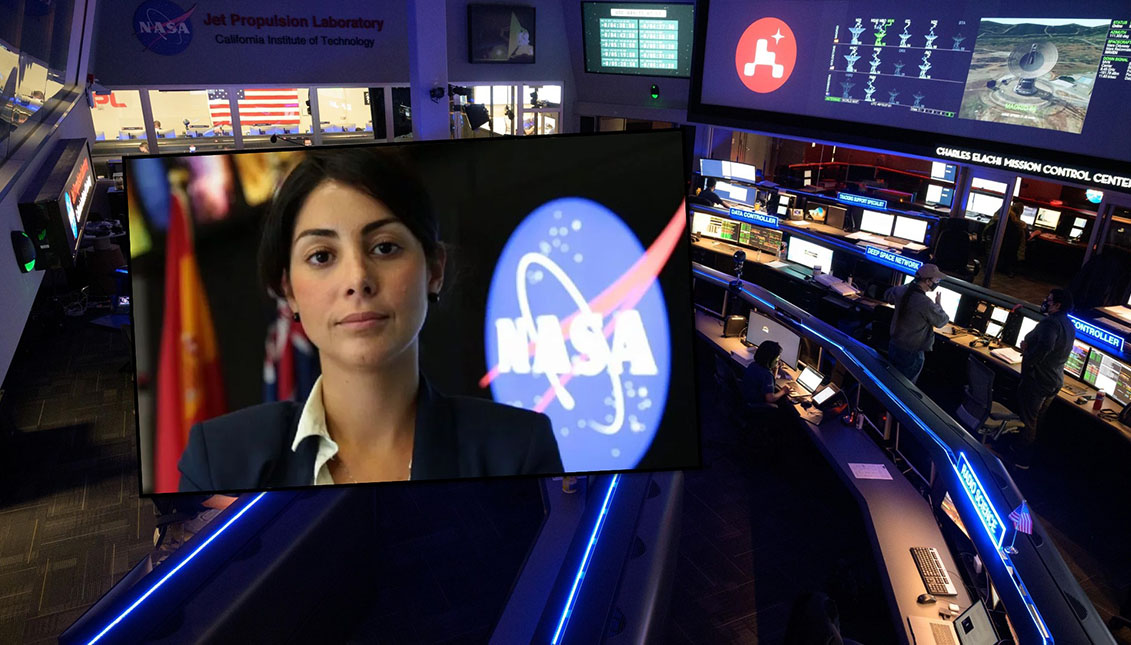
Diana Trujillo, a persevering woman in her fight against stereotypes
The engineer has been inspiring young Latin Americans for years to pursue their dreams. Now her message has spread throughout the galaxy and put on the spot a…
In 2018, It was aired "The Colombian Ambush," an advertising campaign developed by a Texan agency commissioned by Bancolombia, El Colombiano, and the mayor's office of Medellin to combat the stereotypes poured about the country in countless Hollywood movies and where Colombia is reduced to a place of kidnappings, drug trafficking, and prostitution.
In a clever twist on the narco cliché, Dieste, the Dallas-based advertising agency, featured many dangerous thugs arguing over a briefcase in the video. What's inside, drugs? Well, no, at the end of the plot, it turns out that what is in the briefcase are the most important works of writer García Márquez.
In one of these videos, directed by Colombian director Simon Brand, appears a woman whose name resonates strongly these days on Earth and even on Mars, aerospace engineer Diana Trujillo -in fact, an actress who plays the scientist.
Here you can see the video starring the "other" Trujillo and where she talks about a previous mission led by her, Curiosity:
The campaign had an international echo. Three years later, last February 18, the Perseverance mission landed on Mars, achieving a historic feat. Or several...
Because at the center of this new mission, which aims to find traces of microbial life from billions of years ago on Mars, was Diana Trujillo.
The scientist is the leader of the team of engineers who developed the robotic arm of Perseverance and also the voice that, for the first time in the history of NASA, narrated in Spanish and for the world the arrival of the rover to the red planet.
"The objective was that this historical moment would reach not only scientists and engineers who speak English, but also grandmothers, grandfathers, mothers, fathers and, above all, the children of Latin America and Spain," the Cali native told El País.
Since then, the scientist's popularity, who has been inspiring young Latinxs who dream of joining NASA for years, has become stratospheric. She has become a trending topic on Google - searches for her name have increased by more than 2,000%, as have searched for the words "Colombian women at NASA" - and has made headlines all over the world.
Some luckier than others...
The newspaper La Repubblica, one of Italy's best-known newspapers, jumped into the controversy with a very unfortunate headline echoing the news.
It said:
"From Colombia of narcos to Mars: the scientist who moves the probe."
Immediately, Italian readers and Internet users expressed their indignation in networks for the way in which the journalist contributed to stigmatizing Colombians; the Colombian Foreign Ministry, through its consulate in Rome, also complained to the management of La Reppublica, and a group of intellectuals joined in protest.
This Monday, the newspaper retracted with the following headline:
"From Colombia to NASA, the Martian life of the scientist."
The "martian blow" was costly for the media, but it helped to highlight something:
RELATED CONTENT
Even today, stereotypes about Colombians and Latinos, in general, remain as entrenched as that day in 2018 when a Diana Trujillo disguised as the "cliché" Colombian woman surprised a bar pimp by talking to him about robotic arms.
The journalist who writes this has had to do a lot of thinking about how we report major breakthroughs starring Latinos - and, especially, Latinas - in the media.
Since Diana Trujillo hit the headlines for her contributions to space research with missions like Curiosity and Mars 2020, her life story, the one that led her to the United States, has inspired many. But it has also tended to become anecdotal—a sort of Cinderella story.
"Diana Trujillo's 'take-off', from cleaning toilets in the U.S. to leading a mission to Mars".
I wrote this headline in August 2020 about the Colombian woman's participation in the Perseverance mission.
It was nothing creative, just a repetition of the arsenal of headlines in the mainstream media about Trujillo: that she arrived in the United States without speaking a word of English and with $300 in her pocket, that she worked cleaning houses to pay for her studies...
But really, Diana Trujillo was the first Latina migrant to be part of a NASA Academy program.
An eminent researcher. Someone who has built with her team the most advanced robot of the space agency and who will very possibly appear in the history books -if such a thing exists in the future- as one of the personalities who contributed to the development of future research on Mars and who knows if also to its colonization.
By then, perhaps the fact that she is a woman, that she is Colombian, that she started her career cleaning toilets, or being a migrant would be minor issues. They will be as outdated by a world today is in constant change as labels and prejudices will be.
In response to La Reppublica's headline, Trujillo replied as only someone who is already several light years ahead of our blissful mania for judgment, our racism and rampant machismo responds:
"Colombia must continue to be known for the talent we produce day by day innovative people, artists, athletes, and even female space engineers, who exemplify the beautiful culture of our country."
It doesn't get any truer than that.











LEAVE A COMMENT: